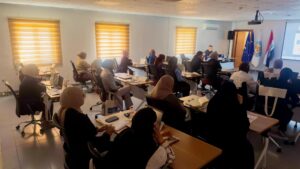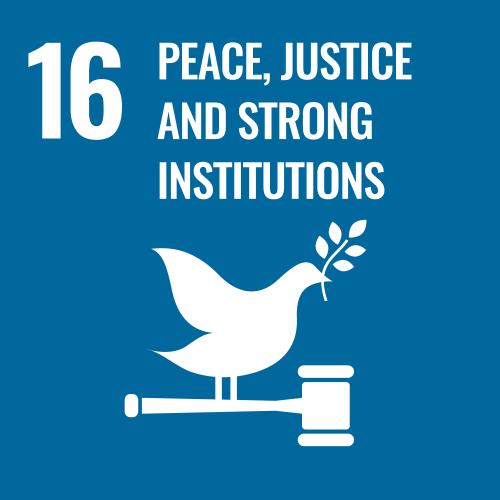
30/09/2025
Iraq has hosted a new specialized activity for counterterrorism investigations with a gender perspective in the counterterrorism investigation module.
The Joint Coordination Center (JCC) in Baghdad has hosted this new specialized training course focused on intelligence tools applied to the fight against terrorism and framed within the European CT Just project.
This activity focuses on operational intelligence, human and open sources within the framework of human rights, and the professionalization of women in the field of security.
Entitled “FTF Counterterrorism Investigation: HUMINT, OSINT & GEOINT as a Professionalization Tool,” this week-long activity was designed in response to a specific priority identified by the Iraqi authorities: to strengthen the operational capabilities of security units responsible for investigating foreign terrorist fighters (FTFs), applying modern intelligence tools with a methodology that respects human rights and is gender-sensitive.
Twenty-five female Iraqi officers from various state agencies, including the Ministry of the Interior (FIIA) and ONSA, participated. The training was delivered by a multidisciplinary European team with specialists from Spain, Belgium, and EUROPOL, who shared operational approaches, best practices, and international standards on intelligence, especially aspects of human and open sources in counterterrorism investigations.
The opening remarks were given by Major General Alaa Jaber Hasim, Director of the Directorate of Education and Training Affairs at the Ministry of the Interior and Head of Training, Research, and International Cooperation. In his speech, he expressed his support for the CT-Just project and EUAM, highlighting the importance of the training program, which he described as an added value to the activities carried out within the framework of CT-Just.
This recognition was echoed by Division Commissioner Angelina Mezach, head of the Security Area at EUAM-I, who thanked the European Union for funding and facilitating this specialized activity for women in the field of international cooperation. She highlighted her satisfaction at supporting such an initiative, emphasizing its contribution to the empowerment of women in law enforcement and its long-term impact on building a safer society.
The course methodology combined theoretical presentations with numerous practical exercises, including simulations, real-life case studies, and group dynamics. The pedagogical structure revolved around six technical blocks: HUMINT (Human Intelligence); OSINT (Open Source Intelligence); GEOINT (Geospatial Intelligence), all combined in operational simulations, data cross-referencing, and integrated analysis reports.
The training was delivered by specialists in strategic analysis, digital investigation, and forensic methodologies, including representatives from the Spanish National Police, the Belgian Federal Police, and an analyst from the EUROPOL Terrorism Reference Unit (IRU) attached to the EUCTC.

In line with the strategic guidelines of the CT-Just project, the activity has mainstreamed the gender perspective, both in terms of content and in the selection of participants and specialists. Emphasis has been placed on the need to increase female participation in intelligence and investigation units, aligning training with the commitments of the Women, Peace and Security Agenda and the European Union’s Gender Action Plan III (GAP III).
This activity reinforces the ongoing collaboration between the European Union and the Iraqi authorities in the fight against terrorism and constitutes an important step towards consolidating a national technical community capable of tackling complex challenges using modern methodologies that respect human rights and are gender-sensitive.
The training has been very positively evaluated by the participants, who have highlighted its operational applicability and the added value of international cooperation.


